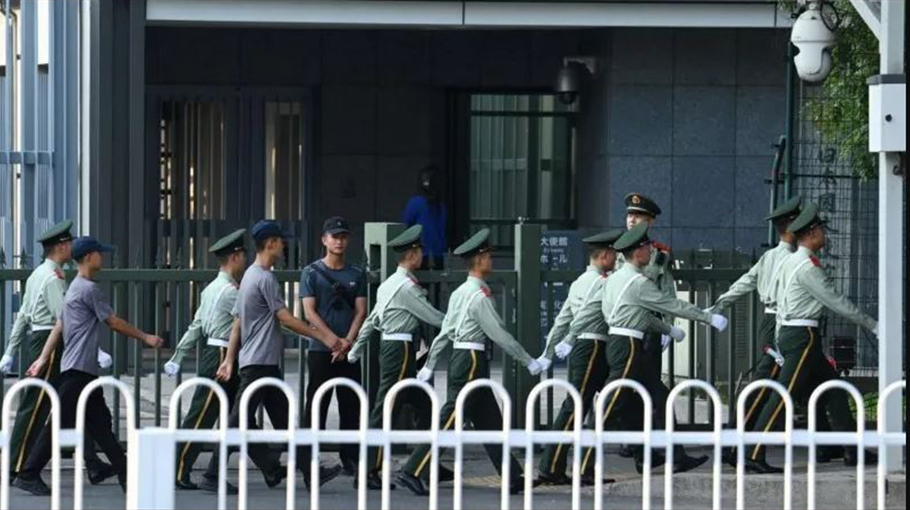Schoolboy's killing in China sparks Japanese fears

The killing of a Japanese schoolboy in the Chinese city of Shenzhen has sparked worry among Japanese expats living in China, with top firms warning their workers to be vigilant.
Toshiba and Toyota have told their staff to take precautions against any possible violence, while Panasonic is offering its employees free flights home.
Japanese authorities have repeated their condemnation of the killing while urging the Chinese government to ensure the safety of their citizens.
The stabbing of the 10-year-old boy on Wednesday was the third high-profile attack on foreigners in China in recent months.
In a statement issued to the BBC, electronics giant Panasonic said it would "prioritise the safety and health of employees" in mainland China in the wake of the latest attack.
Panasonic is allowing employees and their families to temporarily return to Japan at company expense and is offering a counselling service as well.
Toshiba, which has around 100 employees in China, has urged its workers "to be cautious of their safety.".
The world's biggest car manufacturer, Toyota, meanwhile, told the BBC it was "supporting Japanese expatriates" by providing them with any information they might need on the situation.
Japan's ambassador to Beijing has also urged the Chinese government to "do its utmost" to ensure the safety of its citizens.
Meanwhile, on Thursday, Japanese Prime Minister Fumio Kishida called the attack "extremely despicable" and said Tokyo had "strongly urged" Beijing for an explanation "as soon as possible."
Some Japanese schools in China have contacted parents, putting them on high alert in the wake of the stabbing.
The Guangzhou Japanese School cancelled some activities and warned against speaking Japanese loudly in public.
Some members of the Japanese expatriate community in China have told the BBC they are worried about their children's safety.
One man, a 53-year-old businessman who has lived in Shenzhen for nearly a decade, said he would be sending his daughter back overseas to university earlier than usual.
"We always considered Shenzhen a safe place to live as it's relatively open to foreigners, but now we are all more cautious about our safety," he said.
"Many Japanese people are deeply concerned, and numerous relatives and friends have reached out to check on my safety."




